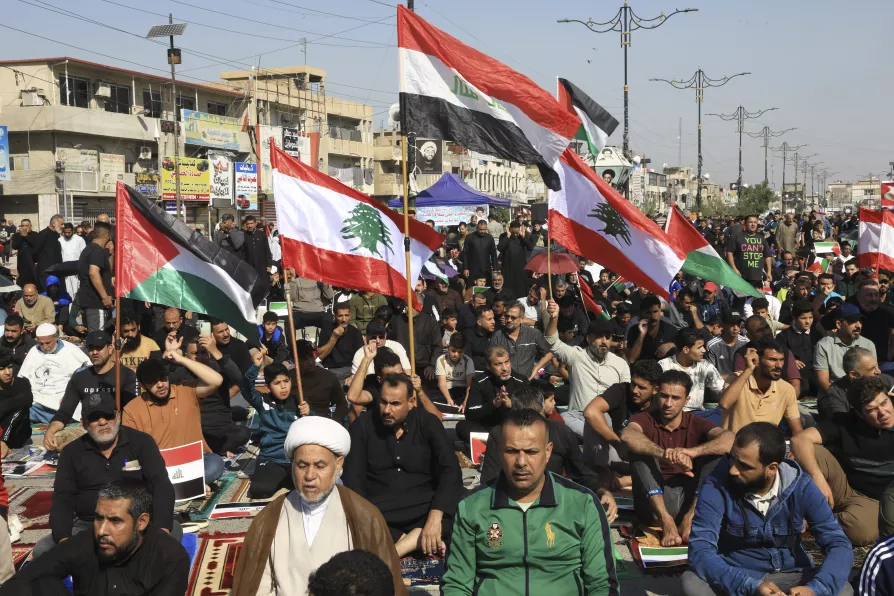Israel makes a veiled threat to attack Iraq

 Followers of Shiite cleric Muqtada al-Sadr chant slogans while waving Iraqi, Lebanese and Palestinian flags protesting against the war in Palestine and Lebanon at Sadr city in Baghdad, Iraq, November 15, 2024
Followers of Shiite cleric Muqtada al-Sadr chant slogans while waving Iraqi, Lebanese and Palestinian flags protesting against the war in Palestine and Lebanon at Sadr city in Baghdad, Iraq, November 15, 2024
ISRAEL issued a veiled threat today to strike Iraq in response to recent attacks by militant groups based in that country.
In a letter to the United Nations security council posted on the X social media platform, Foreign Minister Gideon Saar claimed that his country had the right to “take all necessary measures to protect itself and its citizens against the ongoing acts of hostilities by Iranian-backed militias in Iraq.”
Militants in Iraq have launched several air attacks against both Israel and US forces since Hamas attacked southern Israel from Gaza on October 7 2023.
Similar stories














